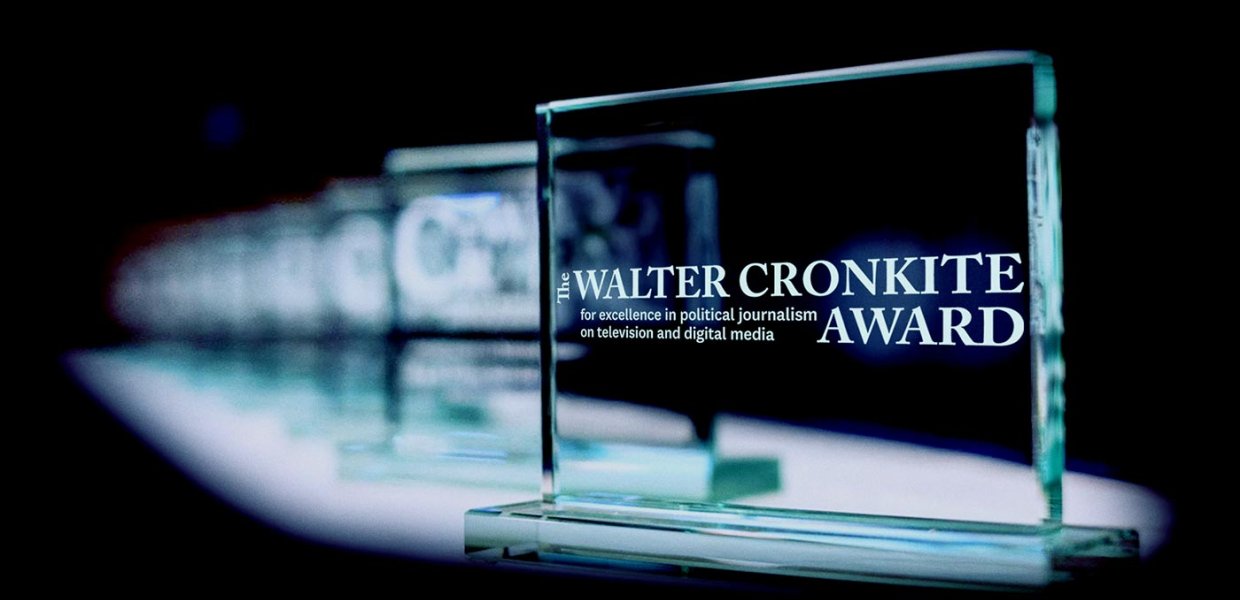At a time when multiple independent polls show that an overwhelming majority of Americans are deeply concerned about the future of democracy, the Walter Cronkite Award for Excellence in Political Journalism on Television and Digital Media honor journalists whose work exemplifies the role of a free press in protecting constitutional principles, defending the rule of law, and holding power to account.
Established in 2001 and presented biennially by the USC Annenberg School for Communication and Journalism, the Walter Cronkite Awards for Excellence in Political Journalism recognize outstanding political journalism on television and digital media that meets the highest standards of reporting and analysis.
This year’s competition invited submissions that demonstrate how a free press defends democracy — a mission that reflects the legacy of Walter Cronkite. For 19 years, up to 30 million Americans tuned in nightly to watch Cronkite anchor the CBS Evening News. A national poll once named him “the most trusted man in America.” When he went to Vietnam in 1968 to investigate if the U.S. government was telling the truth about winning the war, his conclusion — “no” — became an inflection point in the war, in politics and in the responsible use of the power of public discourse.
Cronkite anticipated the evolving challenges facing broadcast journalism. In testimony before the U.S. Senate, he warned of threats to press freedom, stating: “Broadcast news today is not free.... [I]ts freedom has been curtailed by fiat, by assumption, and by intimidation and harassment.” He cautioned that, “the power to make us conform is too great to forever lie dormant. The axe lies there temptingly for the use of any enraged administration.”
“The 2025 honorees reflect the courage and integrity that defined Walter Cronkite’s career,” said Gordon Stables, director of USC Annenberg’s School of Journalism. “Judges selected each for demonstrating how a principled and trustworthy press confronts threats to democratic institutions through rigorous, impactful reporting — even when such work involves personal or professional risk.”
The work recognized this year includes what the judges described as investigations exposing attempts to intimidate law firms for defending due process; reporting on efforts to turn federal agencies into tools of political retribution; and coverage of a nationwide but under-reported protest movement fueled by local activism. The judges noted examples of journalistic excellence that included pursuing truth unflappably despite official intimidation and ridicule; demonstrating fairness without succumbing to false equivalence or bothsidesism; and reporting stories even when key players refused to go on camera for fear of retribution.
To recognize the growing impact of political information conveyed through comedy, satire and parody, the Cronkite judges this year added a new category, Comedic News and Commentary, whose inaugural winner is The Daily Show’s Jon Stewart. Also new is the eligibility of digital-original reporting, reflected in the award to CBS Evening News Plus anchor John Dickerson’s Reporters Notebooks.
USC Annenberg’s Cronkite Awards partners with the Annenberg Public Policy Center of the University of Pennsylvania to present the Brooks Jackson Prize for Fact-Checking, named for the founding director of FactCheck.org. This year’s winner, also announced today, is KSL-TV 5 Salt Lake City, recognized for its Truth Test series of fact-checks during Utah’s 2024 legislative session.
The Walter Cronkite Awards for Excellence in Political Journalism are administered by USC Annenberg’s Norman Lear Center for the study of entertainment, media and society. For more information, including the winning entry videos, visit cronkiteawards.org, where information about the presentation of awards will be posted.
